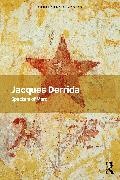Read more
Published shortly after the fall of Communism in Eastern Europe and the dissolution of the Soviet regime,
Specters of Marx is one of Derrida's most interesting and prophetic books. Whilst many in the West heralded the triumph of liberal democracy and "the end of history", Derrida takes several steps back to argue that whilst Communism may have disappeared in much of the world, the questions posed by Marx continue to haunt us.
In his customary provocative style, he asks some uncomfortable questions: after the fall of Communism, can we preserve Marx's legacy of radicalism? How do we continue his philosophy of responsibility? Uncannily anticipating many of the challenges facing us today, Derrida argues that the capitalist system is plagued by a multitude of ills, including aggression, trade wars, debt, the exploitation of migrant labour and ethnic conflict.
This Routledge Classics edition is a translation of the revised French edition and includes a debate between Derrida and Étienne Balibar on Marx and Marxism, published here in English for the first time. It also includes new corrections and additions to the text and footnotes made by Derrida after the book's initial publication in French.
Translated by Peggy Kamuf and with a new Foreword by Peter Salmon, this Routledge Classics edition retains the original Editors' Introduction by Bernd Magnus and Stephen Cullenberg.
List of contents
Foreword to the Routledge Classics Edition Peter Salmon
Translator's Note Peggy Kamuf
Editors' Introduction Bernd Magnus and Stephen Cullenberg
Dedication Exordium 1. Injunctions of Marx 2. Conjuring-Marxism 3. Wears and Tears (Tableau of an ageless world) 4. In the Name of the Revolution, the Double Barricade (Impure "impure impure history of ghosts") 5. Apparition of the Inapparent: The phenomenological "conjuring trick" 6. Thirty Years Later
Étienne Balibar 7. Debate around
Specters of Marx Jacques Derrida, Étienne Balibar, and Patrice Loraux. Index
About the author
Jacques Derrida (1930-2004) was born in Algeria. His philosophy, known widely for launching the theory of deconstruction, fused psychoanalysis, Marxist theory, philosophy and literature. Derrida was a central figure in academic life in the latter part of the twentieth century, and his work continues to provoke and inspire throughout the intellectual world.

